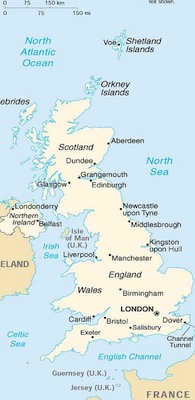For two alliances with a largely identical membership list, NATO and the European Union have a long history of struggling with joint policy planning. 22 NATO members are also members of the EU, though with the Brexit, it’s soon to be 21.
 That’s casting a rather big pall over the upcoming EU and NATO summits in the coming days, with NATO hopes of bolstering their ties to the EU bloc, particularly as it relates to their anti-Russia policy along the border, is looking a lot different with the prospect of Britain withholding involvement.
That’s casting a rather big pall over the upcoming EU and NATO summits in the coming days, with NATO hopes of bolstering their ties to the EU bloc, particularly as it relates to their anti-Russia policy along the border, is looking a lot different with the prospect of Britain withholding involvement.
Britain is the European Union’s largest military spender, and has been leading joint EU naval operations both in the Mediterranean and along the Horn of Africa, and was also committed to the big NATO buildup in Eastern Europe.
Those naval operations might need some revision, and while it doesn’t appear that the NATO buildup is in serious risk, Britain isn’t leaving NATO after all, speculation that an independent Britain might start cutting military spending is throwing their long-term intervention in doubt.
It might not even be entirely voluntary. Potential secession from Scotland and Northern Ireland would be a big shift to the United Kingdom as a whole, and will virtually oblige the remnants of Britain to cut their bottom line figure, if not their percentage of expenditure.
The US, which has been leading the NATO charge against Russia, has also depended on Britain to be their proxy in the EU in pushing them toward a more aggressive strategy, with Britain pushing heavily for punitive sanctions against the Russians. With central European states already resisting those sanctions, Britain’s exit might well mean an end to the EU’s economic warfare.


